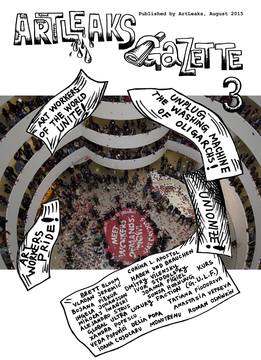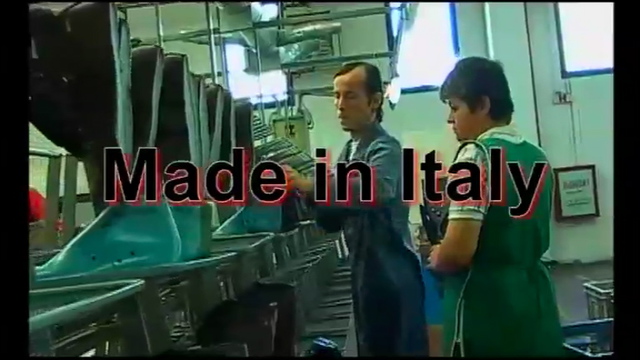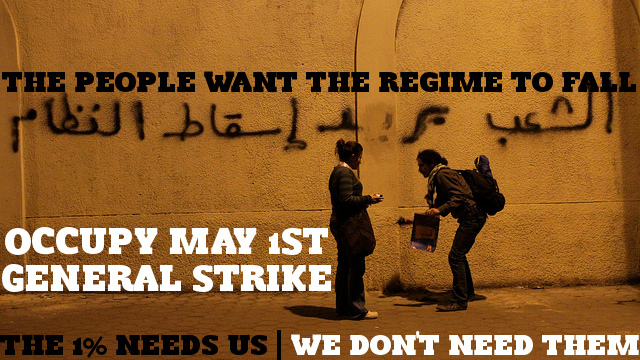Search results for 'labour'
#GlobalDebout
#GlobalDebout
Digital Partisans
On Mute and the Cultural Politics of the Net
NEURO networking Europe
From February 27th to 29th young artists, filmmak- ers, musicians, theorists and activists from all over Europe and many other parts of the world meet at the Muffathalle in Munich for NEURO; a number of events, speeches, discussions, presentations, performances, concerts and actions reflecting the pulse of the age. About two years after the first make-world festival, NEURO will again interface with current debates around migration and mobility, racism and nationalism, civil society and global mobilisation, networking and new technologies, informatisation and precarious labour, education and control society, common organising, and digital culture.
ReadAbout Diesel's New Campaign Called Misopolis
Clean Clothes Campaign release
Diesel says to take female workers' rights serious, with their release
of the campaign Misopolis (see www.dieselforwomen.com). With this
campaign Diesel wants to improve the living conditions of female garment
workers by distributing free abortion pills.
May Day: Art Workers' Pride Visual Archive
April 28, 2014:
This Thursday is May Day, international workers' day.
Across
the globe workers will celebrate May Day in various ways, organizing
street demonstrations and protest marches in their communities,
demanding justice and freedom for all oppressed people.
With this occasion, ArtLeaks will inaugurate a visual archive dedicated
to art workers' pride, which will continue to gather material throughout
the year.
Made in Italy
The wind of the South - UniCommon march to Tunisi [7-12 April]
We are students, precarious, unemployed, a young generation that is too much skilled for a job... We are the 'generation without future' of a Europe in crisis that we don't like and we want to change. We are students of Rome and London who have taken the streets to reclaim a better future.
Readmake world paper 2
The World Social Forum, organized twice in Porto Alegre 2001 and 2002, not only prompted a flurry of autonomous self-organization, crossborder organization, and creative media interventions. It also initiated an intense process of analysis and reflection on the tricky question of a 'global' dynamic of self-organization.
ReadThe Californian Ideology
"Not to lie about the future is impossible and one can lie about it at will"
- Naum Gabo [1]
No One is Illegal - Principles
The No One is Illegal campaign has two goals: to attain concrete victories for immigrants and refugees and to develop the communities' own capacity to attain justice and dignity for themselves and their families. We strive and struggle for a world in which no one is forced to migrate. We also strive and struggle for a world where people can move freely in order to live and flourish in justice and dignity.
ReadTTIP Leaks
Greenpeace Netherlands has released secret TTIP negotiation documents. We have done so to provide much needed transparency and trigger an informed debate on the treaty. This treaty is threatening to have far reaching implications for the environment and the lives of more than 800 million citizens in the EU and US.
ReadThe Occupied Times of London Editorial, Issue #23, "Technology", November 2013.
The latest issue of The Occupied Times of London is devoted to the question of technology in contemporary forms of political contestation. The main question thrown up by the editors is to ask: "What is technology for?" (TMF editors)
ReadUsing the Media: the Clean Clothes Campaign
The existing use of media so far has been determined by the local, decentralized nature of the campaign. Local groups are adapting, editing and redesigning existing material like research results, lines of argumentation and logos, photos and slogans. The educational material, used by trade unions, schools and churches is very specific and "customized", and therefore cannot be used in campaigns which target the general public.
ReadDawn of the Organised Networks
At first glance the concept of "organised networks" appears oxymoronic. In technical terms, all networks are organised. There are founders, administrators, moderators and active members who all take up roles. Think also back to the early work on cybernetics and the "second order" cybernetics of Bateson and others. Networks consist of mobile relations whose arrangement at any particular time is shaped by the "constitutive outside" of feedback or noise.[1] The order of networks is made up of a continuum of relations governed by interests, passions, affects and pragmatic necessities of different actors. The network of relations is never static, but this is not to be mistaken for some kind of perpetual fluidity. Ephemerality is not a condition to celebrate for those wishing to function as political agents.
Read







